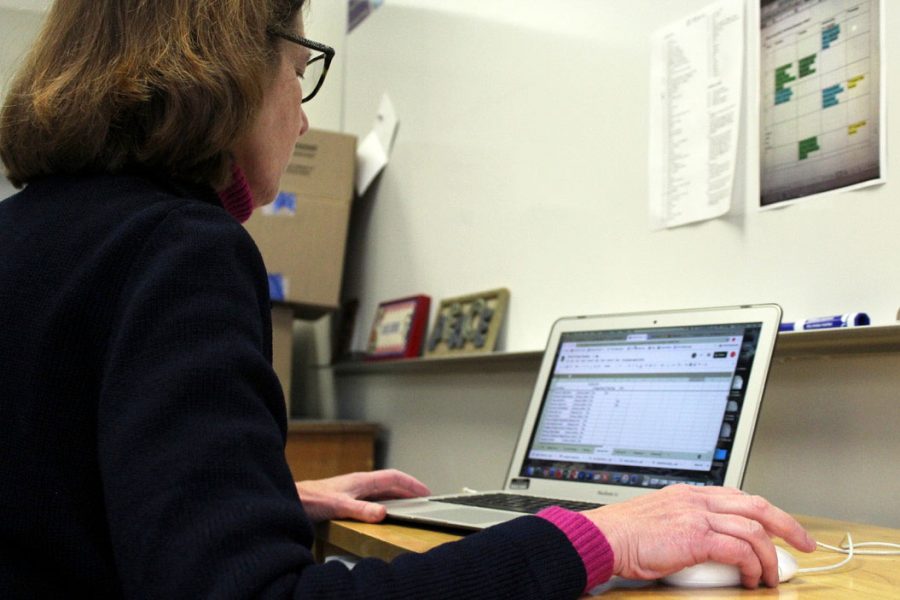COVID-19 precautions change standardized testing
Distance testing forces proctors, examinees to adapt
High school student advocate Jami Lapray prepares for students to continue registering for AP testing.
November 6, 2020
As Park ends its first round of fully distance Measure of Academic Progress testing, testing coordinator Jami LaPray said Park will utilize its hybrid plan to help ensure any testing done in person will be safe for students.
“We’re utilizing the same precautions that we’re using for when we come to school (during) hybrid, so it will entail six feet apart masks and cleaning,” LaPray said. “We will use all of the precautions that are in place and recommended by the state.”
Chemistry teacher Alex Polk said when students take the test at home, it can decrease the anxiety from pacing and others finishing.
“When you’re testing in person there’s that aspect of ‘oh that kids done and, I’m on question twenty,’” Polk said. “So when you’re in a different space that minimizes looking around you to see where other people are at.”
Polk said not being with his students in person made it harder for him to diagnose the problems they were facing while testing.
“Not being able to directly help and see what technology issue they may be facing was hard because I had to troubleshoot from a distance instead of being right there to help,” Polk said.
Junior Robert Perelman said the idea of testing in a distance environment would make him less likely to take it because of interruptions at home.
“I would be less motivated to take standardized tests in distance format because there would be more distractions and overall less desire to perform well than if I was taking it in person with a monitor,” Perelman said.
LaPray said rewards such as extra credit are used to incentivize kids to take the test and not opt out.
“I haven’t seen teachers upping incentives although it varies from teacher to teacher, but the biggest incentive has been extra credit points for taking the test,” LaPray said. “That has worked really well in past years, but I dont think teachers will need to offer more this year.”
Polk said he hasn’t rewarded his students to take the test because he feels that it stresses them even more.
“I didn’t offer incentives to my students, but I understand that motivation to offer incentives,” Polk said. “That adds more undue pressure to this test that already stresses some people out.”
LaPray said she will consider this year’s testing an accompaniment if they get the same number of students to test.
“I will know if testing this year is a success if at least as many students take the exams as in the past,” LaPray said. “Also if we are able to test without disrupting too much of the other things that are going on in the school, I will be happy.”
The Measure of Academic Progress (MAP) testing that has occurred so far is elective by the district to help collect data and is not mandated by the state like the Minnesota Comprehensive Assessments. No decision has been communicated to the district if the MCA will be proctored virtually.




